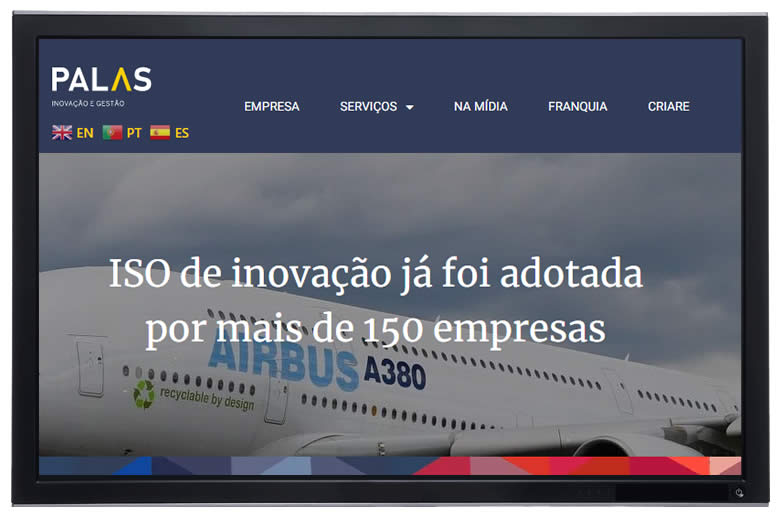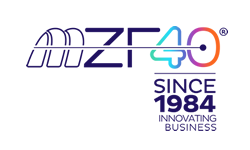Innovation ISO has already been adopted by more than 150 companies
Innovation is a latent demand these days. However, in a context of large and rapid transformations combined with exponential technologies, companies feel completely lost about how to keep the business attractive and profitable in such a volatile environment. Therefore, ISO 56.002, of innovation management, was launched, in which PALAS, innovation and management consulting firm, emerged as a pioneer in its formatting and implementation process. In little more than a year, the norm has already been adopted by more than 150 companies around the world – four only in Brazil. The largest of these is AirBus, one of the largest companies in the world, in the aeronautical sector, with more than 150 thousand employees.
Founded in 1947, with the intention of helping in the reconstruction of companies devastated by the Second World War, ISO – International Organization for Standardization, is a non-profit institution based in Geneva, Switzerland. Anchored on the principles of isonomy (which in Greek means equality), the organization has over 22 thousand technical standards, more than 180 management system standards that aim to establish worldwide standards for business management. With 164 member countries, ISO has consolidated its position as one of the most important international references when it comes to standardization and management models.
The format
With all this credibility and know how, in 2013 ISO created an international study group, ISO TC-279, in order to map the best innovation practices of all member countries. Over the years, many countries have actively collaborated, as was the case with France, Canada, Portugal, Russia, Spain, England, and Brazil itself, which contributed with standard ABNT/16.501/2011. Here in Brazil, the knowledge sharing process took place through the ABNT/CEE-130 group, which was attended by Alexandre Pierro, founding partner of PALAS.
To date, there are already nine standards that encompass the innovation management system. ISO 56,000 is the standard that determines vocabularies and fundamentals. ISO 56,002 is the standard that provides guidelines for implementing the management system and is the only one that can be certified via a conformity certificate.
Besides this, there are also ISO 56.003, which helps companies through tools and methods for innovation; ISO 56.004, in charge of assessment; ISO 56.005, of tools and methods for intellectual property management; 56.006, of tools and methods for the management of strategic intelligence; 56.007, of idea management; 56.008, of tools and methods for measuring the performance of the management system; and 56.009, which is a practical guide for innovation.
Although not all are already published and there is none with a Portuguese version, the standards have been widely sought after by companies of various sizes and segments in the search for better innovation management. “We have almost 150 companies in Brazil seeking to understand the applicability and benefits of ISO’s innovation management system. This shows that Brazil is in tune with the best innovation management practices in the world,” explains Pierro.
Principles
Based on eight pillars – strategic direction, process approach, value realization, future-focused leadership, collaborative culture, adaptability and resilience, uncertainty management, and insight management – ISO 56,002 holds that an innovation can be a product, service, process, model, method, or a combination of any of these. However, the concept of innovation is characterized by novelty and value. In short, this means that ideas without the manifestation of value are not innovations but inventions.
The terminology of the main standard with the number two is an indication that it is a standard of guidelines and not of requirements. In other words, it points paths, but understands that there is no single recipe for all companies. “Innovation is a very broad, vast, and complex field of study. ISO understood that what works in one company may not work in another. Therefore, in addition to deeply understanding all these norms, the professionals involved in the implementation process must have a deep knowledge of innovation methodologies and tools to achieve really effective results,” argues Pierro.
The certification process, via a conformity certificate, is simpler than it seems. ISO 56.002 can be implemented in companies of all sizes and segments. It is possible to implement it in a single department or in the company as a whole. There are also cases of implementation in several units at the same time, even in different countries, in the case of multinationals. The first step is to perform an assessment, which evaluates the level of adherence of a company in relation to the pillars of the standard. After that, the implementation process begins, which takes from four to eight months, depending on the level of complexity and maturity of the company in relation to the theme. When the management system is ready, a certifier performs the certification audit, which, if approved, issues the ISO 56,002 certificate of compliance.
In Brazil
In total, four Brazilian companies have already adopted ISO 56,002. The first was MZF4, a nylon transformation industry located in the capital city of São Paulo. At the same time, CSI Locações, an equipment leasing company from Fortaleza, in the state of Ceará, also won the certificate of compliance with this standard.
The third company was PALAS, which decided to try out this management model in its own processes. “Even though we are specialists in innovation and participated in formatting the standard, we noticed many gains when we carried out our own implementation, such as, for example, the definition of goals and better management of business risks,” says Pierro.
The most recent company, which closed the cycle of the first year of ISO 56.002 publication, which was published in July 2019, was Atento, one of the largest employers in Brazil, a multinational in the contact center business. “Today, we can say that innovation is part of our culture and is among the company’s main investment priorities, with the aim of enhancing our offering and bringing the best results to our customers,” highlights Maurício Castro, the company’s director.
Very soon, another company will receive the certificate of conformity in this standard. This time, in the technology industry. And, it seems, by 2021, there will be many more, as there are many companies interested in implementing it. The benefits are enormous. “Besides becoming a reference in innovation, the biggest advantage of the implementation process of this standard is to transform ideas into results. Unfortunately, we see many companies generating great ideas, but, for lack of processes, they never get off the paper. With ISO 56.002, ideas are taken seriously. We put creativity to invoice”, emphasizes Pierro.

Published in Palas website on September 28th, 2020:
gestaopalas.com.br/iso-de-inovacao-ja-foi-adotada-por-mais-de-150-empresas


